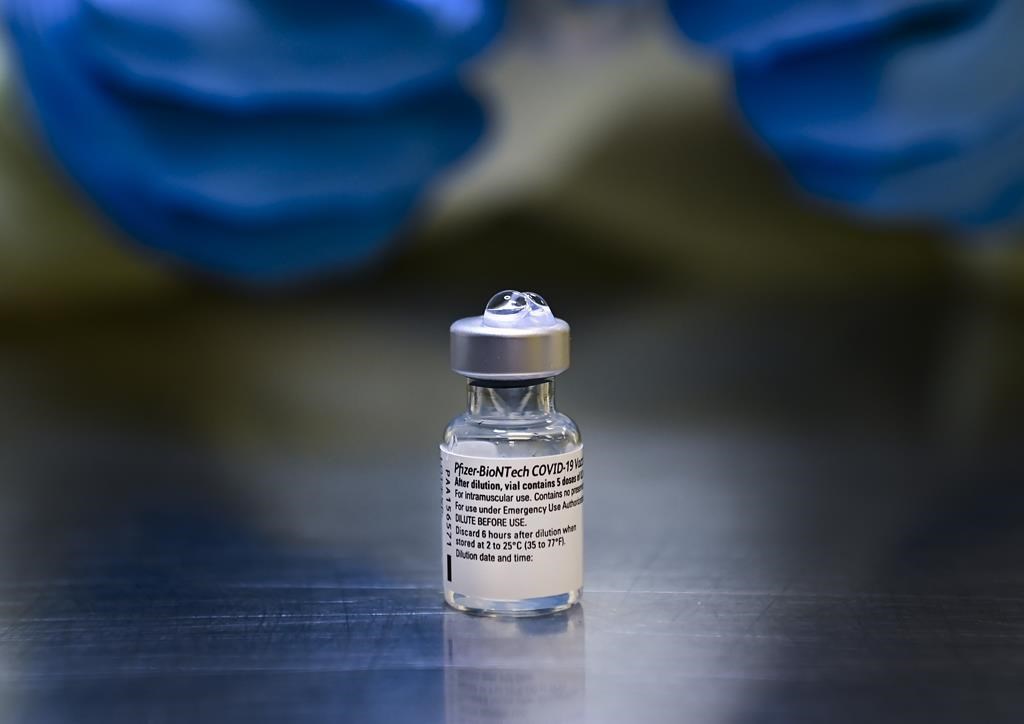Experts caution against comparing COVID-19 vaccines

Posted March 2, 2021 6:28 am.
Now that Canada has approved its third COVID-19 vaccine — and a potential fourth is on the way — many Canadians may be wondering “which vaccine should I get?”
The message from the experts is simple. Take what you are offered.
With shipments ramping up and vaccine rollout in Canada back on track, more Canadians across the country are getting ready to roll up their sleeves.
While all three vaccines are 100 per cent effective against death and hospitalization as a result of COVID-19, clinical trials suggested mRNA vaccines (Pfizer and Moderna) were more effective at preventing COVID-19 infections.
The trials from Pfizer and Moderna reported the efficacy rates of both products to be around 95 per cent effective in preventing infections. Meanwhile the AstraZeneca efficacy rate was reported to be around 62 per cent effective.
Epidemiologist Dr. Raywat Deonandan is reminding Canadians that comparing vaccines head to head doesn’t always make sense.
“All of these vaccines are 100 per cent good at preventing serious cases,” says Deonandan. “So if your goal here is to avoid having scarred lungs and long-term disability and hospitalization and death, all the vaccines that Health Canada has authorized get that job done.”
Some factors to consider when looking at efficacy rates is that different populations in different parts of the world were used in clinical trials. Those inconsistencies, plus a difference in variants, could skew the efficacy numbers.
In a recent analysis in England, that study showed a single shot of either the AstraZeneca or Pfizer-BioNTech vaccines reduced the chance of needing hospital treatment by more than 80 per cent.
In Scotland, the AstraZeneca vaccine reduced the risk of COVID-19 related hospitalization by 94 per cent after the first of two doses.
Related articles:
-
What side effects do Canadians report after getting COVID-19 vaccine?
-
Oxford-AstraZeneca vaccine for COVID-19 needs better promotion: experts
-
How effective is the AstraZeneca COVID-19 vaccine? What you need to know
-
Third US vaccine could raise question: Which shots are best?
Deonandan says he can see why some people may question why they are receiving “a less effective” vaccine but says at the end of the day Canadians should be happy they are getting offered a shot.
“I understand people’s trepidation. But it’s not clear that it is the lesser quality vaccine first of all, and second of all lets get some immunity into us.”
“There may not be a decision to be made,” says Deonandan. “You’re offered what you’re offered.”
The National Advisory Committee on Immunization (NACI) is concerned there is limited data on how well the AstraZeneca vaccine will work in older populations and has recommended provinces don’t administer it to anyone over the age of 65.
Health Canada officials say the decision on the Johnson & Johnson vaccine could come in the next few weeks after the U.S. and the Food and Drug Administration (FDA) recently approved the shot.
One dose of the J&J vaccine was found to be 85 per cent protective against the most severe COVID-19 cases. After adding in moderate cases, the total effectiveness dropped to about 66 per cent.
-With files from CityNews reporter Faiza Amin



